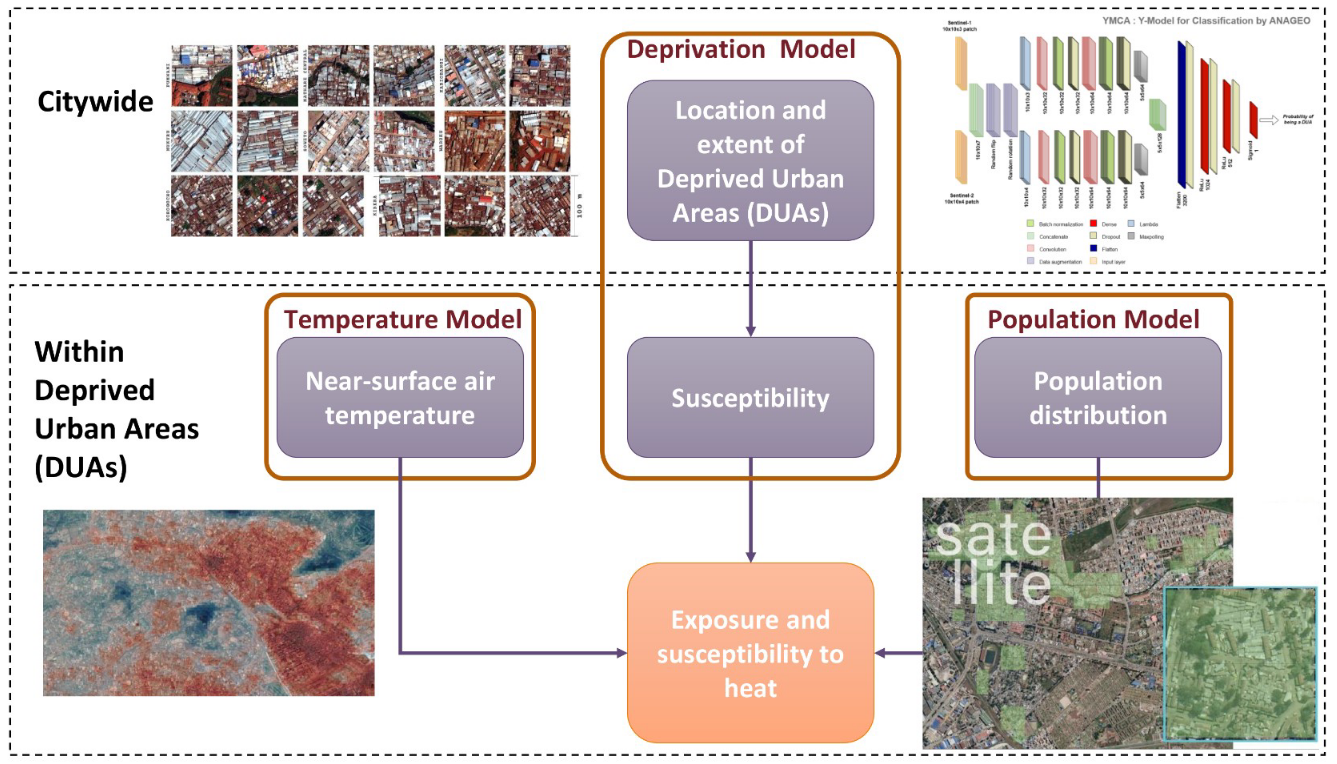Featured Paper: ONEKANA: Modelling Thermal Inequalities in African Cities

Authors: Sabine Vanhuysse, Angela Abascal, Stefanos Georganos, Jon Wang, Monika Kuffer
The new Climate Change AI Nordics Featured Paper is “ONEKANA: Modelling Thermal Inequalities in African Cities” by Sabine Vanhuysse and colleagues. This research addresses the pressing issue of thermal disparities in rapidly urbanizing African cities, where vulnerable populations are disproportionately affected by extreme heat due to environmental and socioeconomic factors.
The paper combines Earth Observation (EO) data, Machine Learning (ML), and Citizen Science to model near-surface air temperatures at a spatial resolution of 100m x 100m. By integrating satellite imagery with in situ temperature measurements, the paper provides detailed insights into how different urban areas experience varying thermal exposures. Target data comes from fixed sparse sensors, and crowd-sourced mobile measurements by citizens. The approach sheds light on urban heat distribution and may empower local communities to participate actively in data collection and climate adaptation strategies.
The findings underscore significant local differences in thermal exposure, emphasizing the necessity for targeted, cost-effective adaptation measures to protect the most affected urban populations. This work exemplifies the potential of combining AI-based tools with community engagement to address climate challenges in vulnerable regions.
For a comprehensive understanding, we encourage readers to explore the full paper (dipot.ulb.ac.be).
